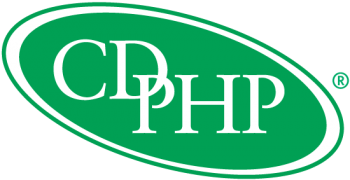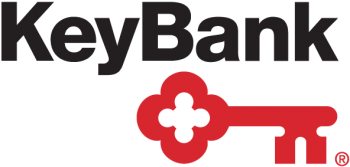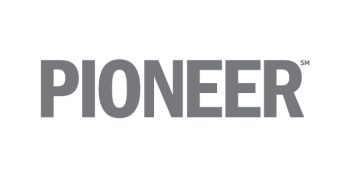News
February 26, 2019Don’t Block NY Building Coalition Launches to Stop Irresponsible Expansion of Prevailing Wage; Support Economic Development and Competitive Jobs in NYS
Nearly 30 business, building, affordable housing, construction, health care and economic development groups, among others, have joined forces to create Don’t Block NY Building (dontblocknybuilding.org), a new coalition aimed at supporting economic development and encouraging job growth in New York State.
As its first initiative, Don’t Block NY Building is opposing legislation – S.1947 (Ramos) / A.1261 (Bronson) – that would artificially inflate the cost of future construction, while also discouraging public-private partnership throughout New York State. This legislation would unnecessarily expand the definition of public work to include nearly all future construction projects, including those that receive even minor incentives or assistance from local governments, and as a result subject nearly all economic development projects in the State of New York to prevailing wage. The effects would be immediate and devastating to all of New York State, bringing billions of dollars in present and future economic development initiatives screeching to a halt and hobbling the efforts of local governments that are working to strengthen their communities. Simply put, projects would be too expensive to complete.
Negatively impacted projects would include those that rely on public funding to provide a community good – affordable housing, brownfield redevelopments, historic preservation, health care, renewable energy and nonprofits, to name but a few examples.
Additionally, the bill would mandate that the off-site fabrication of products and materials be included under this expanded definition, harming interstate and international commerce and putting New York companies across a range of industries at a major competitive disadvantage.
Don’t Block NY Building Coalition members include: Business Council of New York State, Real Estate Board of New York, Associated Builders and Contractors – Empire State Chapter, American Council of Engineering Companies of New York, American Institute of Architects New York State, Associated General Contractors – New York State, Association for a Better Long Island, Buffalo Niagara Partnership, Business Council of Westchester, Capital Region Chamber, Center State CEO, Cortland County Chamber of Commerce, Greater Binghamton Chamber of Commerce, Greater Rochester Chamber of Commerce, North Country Chamber of Commerce, Habitat for Humanity NY, Healthcare Association of New York State, Long Island Association, Long Island Builders Institute, MACNY (Manufacturing Association of Central and Upstate New York), National Federation of Independent Business – New York, NYS Builders Association, NYS Economic Development Council, New York State Association for Affordable Housing, Steuben County IDA, Unshackle Upstate, Northeastern Subcontractors Association, Wyoming County Chamber of Commerce, and Seneca County Chamber of Commerce, among others.
“This bill undermines the state’s efforts to promote private sector capital investment throughout New York, especially upstate where many counties continue to see flat economic growth. The state needs new investments to help grow and sustain jobs. Driving up project labor costs will hamper many employers, including for-profit businesses as well as non-profit service providers that our communities rely on,” said Heather C. Briccetti, Esq., President and CEO of The Business Council of New York State, Inc.
“This legislation represents a death knell for most private sector development in New York, particularly affordable housing projects. Good wages are important, but this legislation imposes wages and benefits more than two times what a typical construction worker is paid,” said John H. Banks, President, The Real Estate Board of New York.
“This bill would establish an overly expansive and illogical definition of ‘public work’ to include any project that receives economic development assistance, tax credits or even the most basic IDA assistance. The stark reality is that it would kill many of those critical, job-creating projects, particularly in Upstate New York where the vast majority of such development likely would not happen without such programs. These incentives are necessary in the first instance because of the high cost of building and developing in New York, making it ironic if not laughable that the Legislature would entertain adding significant costs and burdens as a result of accepting them. Well beyond the construction industry, community based not-for-profit organizations, brownfield and environmental remediation, affordable housing programs, historic preservation, health care, renewable energy, and other sectors would all be hurt by this deeply flawed public policy. The private sector can do math, and it will not spend $6 as a condition of receiving $2. We need to make New York more affordable and friendly to job creation, not less. Yes—there is a need for a clearly defined and logical definition of public work to protect labor, the private sector and taxpayers — but this scattershot approach is not it,” said Mike Elmendorf, President & CEO of the Associated General Contractors of New York State.
“Imposing prevailing wage on all projects that receive state funding would be a death sentence for Upstate economic development initiatives. Under this mandate, efforts to revitalize neglected areas in our communities would be far too expensive to pursue. This includes critical community development projects like affordable housing, non-profit facilities, hospitals and other construction important to a higher quality of life. If our leaders in Albany are truly committed to growing the struggling Upstate economy, they will scrap this short-sighted proposal and work on serious solutions to get Upstate growing,” said Michael Kracker, Executive Director of Unshackle Upstate.
“Economic Development in New York State is costly, requiring public-private partnershipsto create jobs, stimulate economic activity, and increase quality of life. Redefining public works to include any project that receives public incentives will increase cost by 20% on average, far outweighing the value of any incentive and make projects in New York State economically unfeasible. The NYSEDC strongly opposes these proposed changes that will halt economic activity, stifle job growth, and reduce the number of projects across New York State,” said Ryan Silva, Executive Director of New York State Economic Development Council.
“Regardless of what people think, it’s not the weather that’s driving businesses away. It’s the anti-competitive nature of our government that’s the driving force of our job and population loss. Now we have an ill-fated attempt to redefine public work that will only heighten our states notorious reputation as being unfriendly to business and continue to negatively impact the quality of life for all New Yorkers. As one of the highest taxed and overly regulated states in the nation, New York lawmakers can ill afford to make our state less attractive for job creators. Yet that’s exactly what they’ll do if they attempt to place prevailing wage on private projects,” said Brian Sampson, President of the Association of Builders and Contractors – Empire State Chapter.
“New York’s antiquated prevailing wage mandate is a major contributing factor to the high cost of public construction across our state. From roads and bridges upstate to crumbling subways downstate, New Yorkers are already paying too much for too little in return. Expanding this broken, costly, and inefficient mandate to private sector development will cripple investment and growth, and further shut out New York’s small businesses from bidding and winning work by putting them at a greater competitive disadvantage,” said NFIB’s New York state director, Greg Biryla.
“Prevailing wage requirements would negatively impact affordable housing throughout New York State. Construction costs are not just important but are the determining factor between whether affordable workforce housing is built in our communities,” said Kristin Savard, President New York State Builders Association.
“Habitat for Humanity currently opposes any legislation expanding the definition of “Public Works” to include all construction projects with state subsidies. This change would include affordable housing projects and enforce prevailing wage for Habitat homes across the state. Habitat affiliates are at the forefront in combating our state’s housing crisis. This proposal could slow production, increase purchase prices, and force affiliates to serve fewer families,” said Mary Robinson, Chief Executive Officer of Habitat for Humanity of New York State.
“As New York continues to face a statewide affordable housing crisis, the proposed prevailing wage expansion would make it even harder to build and preserve homes for low-income families across upstate and downstate communities. We will not forget the families, children and seniors who rely on affordable housing – and the Legislature must not forget them either. We urge lawmakers to reconsider this bill and recognize that rushing to unnecessarily increase construction costs will also take homes away from those who most need them,” said Jolie Milstein, president and CEO of the New York State Association for Affordable Housing (NYSAFAH).
“A potential new state law mandating prevailing wages on projects that receive IDA funding would have a chilling effect on building workforce housing so desperately needed in our region,” said Kevin S. Law, President & CEO of the Long Island Association.
“The Long Island Builders Institute, representing over 570 companies on Long Island, strongly oppose any new measures to expand the use of prevailing wage on projects assisted by IDA financing, especially affordable housing. The lack of affordable housing is one of the major issues facing our region and any requirement to use prevailing wage will make it almost impossible to do so,” said Mitchell Pally, Chief Executive Officer of The Long Island Builder’s Institute (LIBI).
“Decision-makers in Albany should be laser focused on setting policies that improve the state’s business climate. Expanding the prevailing wage will make New York less competitive and its associated increased costs will prevent countless projects from proceeding,” said Mark Eagan, President and CEO of the Capital Region Chamber.
“The Business Council of Westchester, the county’s only business membership organization focusing on economic development and advocacy, has always opposed prevailing wage legislation. As we look to recruit and retain more jobs in Westchester County and New York State we cannot afford to create a new state-wide program that would dramatically increase the cost of building new public and private projects. Implementing prevailing wage would be putting another unfunded mandate on the back of businesses and in turn make New York even more costly and less competitive and essentially drive businesses to other states,” said John Ravitz, Executive Vice President and COO of the Business Council of Westchester.
“Expanding New York’s prevailing wage mandate to private projects will stall Buffalo Niagara’s momentum and stymie progress and job creation throughout Upstate. Given Upstate’s anemic business climate, most private development – including non-profit, affordable housing, historic rehabilitation and brownfield projects – do not materialize without some form of public support. Most of these projects can already be described as break-even and a dramatic increase in total project costs will dramatically overtake the value of any incentive turning the whole project financially upside down. Expanding the prevailing wage mandate to private projects will be a death blow to private investment in Buffalo Niagara and the rest of Upstate,” said Dottie Gallagher, President & CEO of the Buffalo Niagara Partnership.
“The reality is that this isn’t about higher wages but about whether important projects can happen at all. New York remains a high cost state, and even more so in areas like the Adirondacks where basic construction costs are even higher than elsewhere. It takes public partnership of various kinds to leverage private investment in the case of many economically important projects, but that leverage is lost with high cost mandates. The result becomes not higher wages but less construction and less work all around. There must be a huge caution light on any expansion of union wage mandates,” said Garry Douglas, President of the North Country Chamber of Commerce.
“New York State is facing very serious challenges in 2019. Our state budget is experiencing a 2.3-billion-dollar shortfall. Higher taxes would crush a lagging southern tier economy. By reforming state regulations involving prevailing wage, this could save state budget billions and ensure our infrastructure needs are met. We must stop any attempt to expand prevailing wage to include private projects granted tax incentives and credits by economic development agencies to spur development. This expansion of existing law would simply crush any development in the Southern Tier,” said Jennifer Conway, President and CEO of the Greater Binghamton Chamber of Commerce.
“Not only would any new expansion of the already onerous prevailing wage laws further increase construction costs across the region, they would do so on the backs of already overtaxed Long Islanders. We don’t need more laws and mandates that hinder growth, we need to strive for more competition and to encourage innovation and efficiency,” said Kyle Strober, Executive Director, Association for a Better Long Island.
























